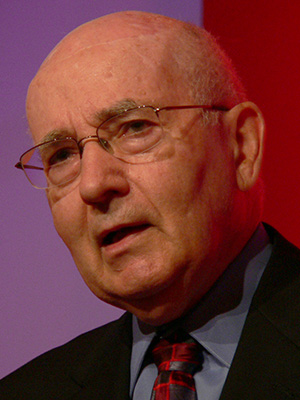Download for offline listening.
His book “Marketing Management: Analysis, Planning and Control”, first published in 1967, ranks amongst the most influential, and enduring, business textbooks of all time. Now in its 16th edition (retitled “Principles of Marketing”), it remains the most authoritative guide to the practice of marketing ever written. Other textbooks come and go with the passage of time. But Philip Kotler’s tome has stood the test of time, in part because it continues to challenge marketing orthodoxy.
Half a century ago marketing played a relatively minor role in influencing business strategy. But Kotler, a trained economist, understood that the growth rate of a company was dictated by much more than simply product and price: it depended on the medley of go-to-market strategies that drove demand (what is commonly referred to as the 4Ps of the marketing mix). Since then, each new edition of his ground-breaking work has reflected the current state of the profession, keeping it as relevant as ever, even to a generation of digital natives raised on social media. His latest (co-authored) book, Marketing 4.0, addresses even more directly the need to transform marketing practices, calling for a more humanistic model, where the goal is to move customers from awareness to advocacy by connecting more closely with their values and needs. “Marketing’s job today is to sell materialism and consumption,” he writes. “Tomorrow’s marketing will be markedly different.”
Today Philip Kotler is the S.C. Johnson & Son Professor of International Marketing at the Kellogg School of Management at Northwestern University. His reputation as the “Father of Modern Marketing” was earned through his prolific writing, extensive speaking engagements around the world, and the many blue-chip companies he has advised over the years. The American Marketing Association calls him “the most influential marketer of all time”. In this charming and insightful interview, Professor Kotler generously shares his perspective on the current state of marketing and the future role it will play in shaping a better world.
